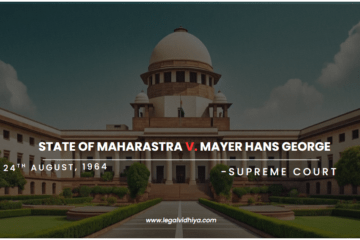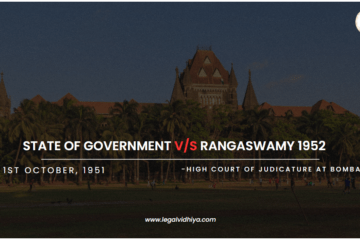
Brook vs Brook (1928) 2kb 578
| Citation | (1928) 2kb 578 |
| Date of judgment | 1st January 1857 |
| Court | High court of chancery |
| Case type | Marriage acts |
| Appellant | Brook |
| Respondent | Brook |
Keywords
Marriage, Denmark, bill, legal actions, brook
Facts of the case
Mr. Wm. Leigh Brook wed Miss Charlotte Armitage in Huddersfield, England, in 1840, and the couple had two children: James William Brook (the defendant) and Clara Jane Brook (the plaintiff). In 1847, Charlotte Armitage passed away.
In a Lutheran church in Wandsbeck, Holstein (Denmark), Mr. Brook wed Miss Emily Armitage, the sister of his departed wife, on June 7, 1850. Both were British citizens who were absent from Denmark permanently and were residing in England. Charles Armitage Brook (dead), Charlotte Amelia Brook, and Sarah Helen Brook were their three children.
Cholera claimed the lives of Mr. Brook in Cologne in September 1855 and Emily Armitage, his second wife, in Frankfort. Mr. Brook made a will before passing away in which he canceled all prior intentions and left his estate to certain people.
He left the mansion-house “Meltham Hall” to his eldest son, James William Brook, excluding his mill property. The rest of his property was to be shared equally among his children, with a double portion for his two sons (James William and the deceased Charles Armitage). If both sons died before turning 21, the property was to be sold, and the proceeds divided among surviving daughters and reputed daughters who reached 21.
Mr. Brook appointed his brother Charles Brook the younger, and brothers-in-law John Armitage and Edward Armitage, as trustees to manage the estate. They were granted full authority to realize the property and act in the best interests of Mr. Brook’s five children and reputed children. Mr. Brook also specified a legacy of £100 to be given to the Huddersfield Infirmary without incurring any legacy duty.
In summary, Mr. Brook married twice and had children from both marriages. He left his mansion-house to his eldest son, the rest of his property to be divided among his children, and appointed trustees to manage the estate for the benefit of his children and reputed children.
Arguments
A legal action was started in March 1856 to create a will and oversee its trusts with the help of the court. However, Charles Armitage Brook passed away that same month, which led to the lawsuit’s dismissal. The eldest son was then named as a defendant in a bill of revivor and supplement filed by the deceased son’s sisters and half-sister against him.
The estate left by the late Charles Armitage Brook, which was designated for him in his father William Leigh Brook’s will, was at the center of the legal dispute. Charles Armitage Brook was claimed to be entitled to the real and personal property left in the will by the bill.
However, there was a disagreement over the legality of William Leigh Brook’s union with Emily Armitage, his late wife’s sister. The Attorney-General argued on behalf of the Crown that since this marriage was void, the Crown should be entitled to the estate.
The bill argued that the marriage was legitimate under either English law or, if not, Danish law as it had taken place there. The legacy obligation and succession duty provisions of the bill were also questioned.
Judgement
The judgment rendered in the cited court case is not expressly stated. After careful examination, it is clear that the citation does not include the name of the presiding judge or the decision. The appellant and respondent are parties to litigation involving marriage statutes. Due to the complexity of the case, it was difficult to comprehend and, regrettably, it was unable to obtain the full judgments.
References
This article is written by Prakriti Mitra, Techno India University, legal intern at Legal Vidhya.




0 Comments